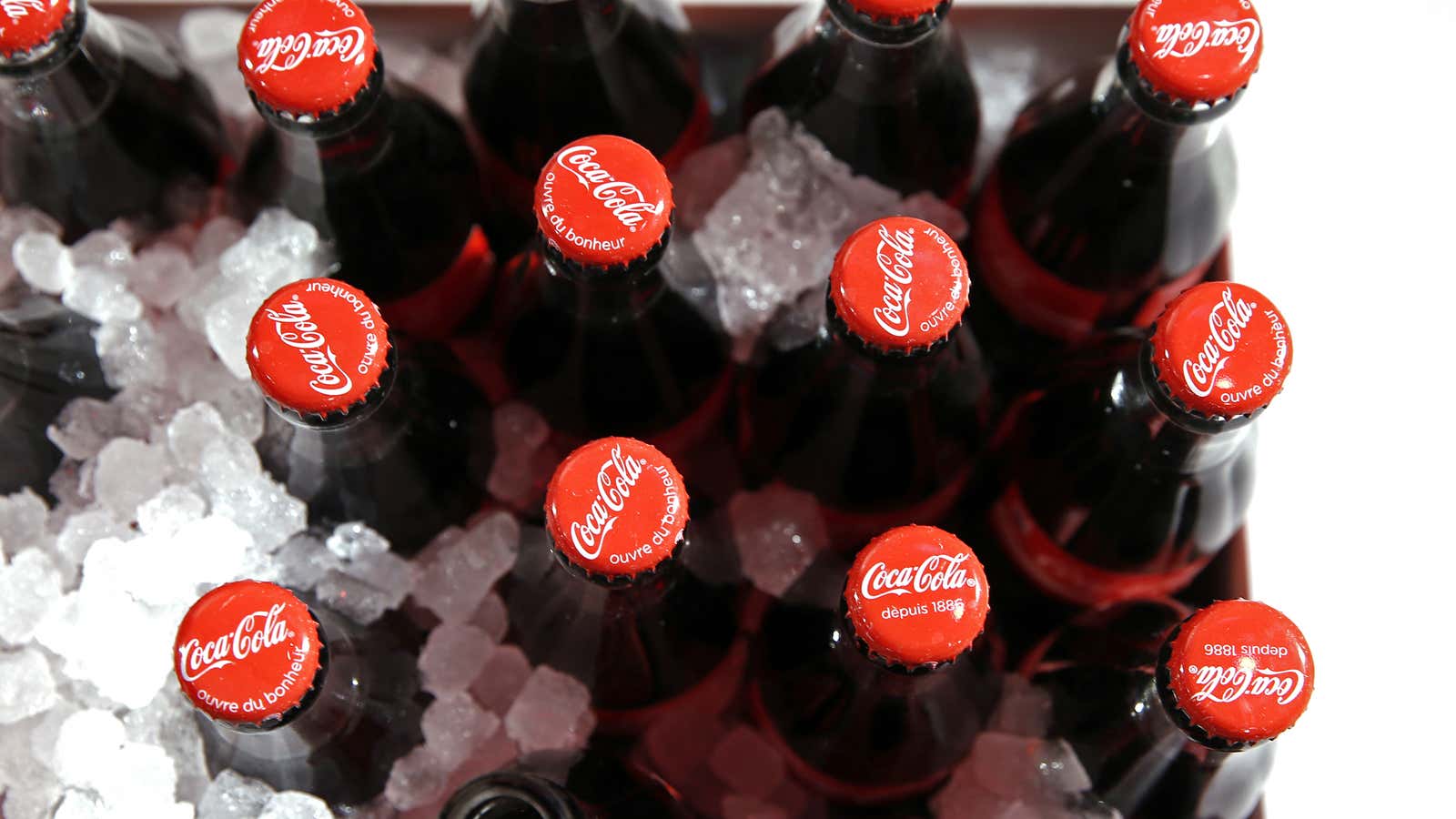The fight over soda taxes is kicking into full throttle as proposals crop up in at least four US cities, with more expected to surface in coming months.
Philadelphia is awash in political ads for and against a tax proposed by its mayor that’s up for a vote in June. San Francisco is poised to get a ballot initiative approved for November. Oakland, California will vote on a tax this year in November, despite some last-minute lobbying, and Boulder, Colorado is looking to have a measure put on the ballot in November, as well.
That puts the soda industry at odds in an unprecedented number of communities and validates efforts by public health groups to show that their soda tax has support beyond ultra-progressive pockets such as Berkeley, California. The scuffle over soda taxes comes as Americans are consuming fewer sugary drinks amid growing concern over their impact on health, particularly Type 2 diabetes and obesity.
The American Beverage Association and its members (which include PepsiCo and Coca-Cola) have successfully defeated dozens of soda tax initiatives. But almost all of those victories were within state legislatures, where special interests have more room for lobbying individual lawmakers.
This year marks the first year the group will face more than three attempts by cities to tax sodas—and many of them are putting the question directly to voters. Industry groups can’t fight ballot initiatives as easily because they must communicate directly to voters. In Berkeley, California, which passed the country’s first soda tax in 2014, industry groups spent upwards to $50 per voter and yet they still got crushed at the polls. That same year, a ballot initiative in San Francisco got majority support from voters, but failed to get the two-thirds vote needed.
Philadelphia
Groups are expected to campaign hard in Philadelphia until the city council votes in June. Mayor Jim Kenney in March proposed the most aggressive soda tax plan in the country, saying it would raise $400 million over the next five years by taxing distributors 3 cents per ounce. The revenue raised would fund universal pre-kindergarten education, among other city programs.
The mayor needs nine city council members to approve a tax; it’s not clear whether he has the support. Some city council members have proposed a lower tax rate.
The Teamsters union claims a soda tax would kill jobs and the beverage association has called it a tax on consumers’ grocery carts. ”These tax proposals have failed to gain traction because Americans oppose regressive taxes that single out one item in the grocery cart,” said Lauren Kane, spokeswoman for the ABA.
That idea that has been roundly dismissed by health advocates.
Oakland
Oakland voters in November will choose whether to follow their Berkeley neighbors and vote in a penny-an-ounce levy on sugary drinks. Tax advocates have already defeated some high-level power plays. A former-Obama-administration-official-turned-PepsiCo-executive met with Oakland community leaders to try and head-off a ballot initiative, reports The San Francisco Chronicle:
The mayor and council chose the ballot, and allies of the beverage industry are now busy leafleting East Oakland—warning residents about the threat of a “grocery tax.”
San Francisco
If the initiative is approved in San Francisco, it will be round two for a soda tax this year, following a narrow defeat in 2014. More than half of voters supported the tax then; two-thirds were required to codify the measure. Public health advocacy groups are feeling confident.
Tax proponents have already run into a major roadblock, though. They’ve gathered more than double the number of required 9,485 signatures for a ballot initiative, but they turned them in on May 12—a day after the deadline. It remains unclear whether the San Francisco director of elections will approve submission. If placed on the ballot, the measure will need only a simple majority to get approval.
Boulder
The city of Boulder, Colorado is about a month away from learning whether a measure will appear on its ballot in November. Health groups there want to tax distributors, levying up to 2 cents per ounce on beverages with at least 5 grams of sugar per 12 fluid ounces.
“They’ve filed the language a couple of weeks ago, and there’s a back-and-forth that happens with the city staff at Boulder,” said John Lamson, spokesman for the Healthy Boulder Kids campaign. “Once the city certifies the ballot language, then the campaign has until early June to gather signatures enough to qualify for the the ballot.”
Lamson said the campaign feels confident they’ll get the signatures they need for the tax proposal, which would send all money raised by the tax to city health initiatives.
